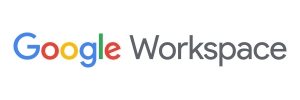Google Gemini Licensing Explained

Google’s recent announcement that Google Gemini is now a core service within Google Workspace has led to some confusion regarding the distinction between the Gemini App and Gemini for Google Workspace and your Gemini licensing options.
This blog post provides clarity on the products and their pricing.
The Gemini App
The Gemini App runs at gemini.google.com. There are two versions of the Gemini App: Gemini and Gemini Advanced.
Gemini is free and runs as a web app and a Chrome extension. It offers a range of features, including:
- Summarization
- Translation
- Q&A
- Brainstorming
- Writing suggestions
Gemini integrates with other Google apps and is free to use.
Gemini Advanced is a stand-alone paid service, and it is included as a core service in most Google Workspace subscriptions. It offers all of the features of Gemini, plus:
- Access to a larger language model
- The ability to create custom models
- More robust image generation
- Priority support
If you have Google Workspace, Gemini Advanced is included as a core service at no additional cost. Stand-alone access to Gemini Advanced costs $19.99 per month and requires a Google One account for security.
Gemini for Google Workspace
Gemini for Google Workspace is an add-on to Google Workspace that brings Gemini directly into Gmail, Drive, Docs, Sheets, and Meets. Integrations into Chat and other Google Workspace apps are expected in the near future.
Pricing depends on your Google Workspace subscription tier. With an annual commitment, Gemini for Google Workspace pricing is as follows:
- Business Tier: $20/user/month
- Enterprise Tier: $30/user/month
You can subscribe on a month-to-month basis for $24 and $36 per user, respectively.
Gemini for Google Workspace for Education has two pricing options with an annual commitment:
- Gemini Education: $16/user/month
- Gemini Education Premium: $24/user/month
Your Next Step:
Give Gemini a try. For a limited time, we are offering a Gemini $10 Trial for Google Workspace clients that includes Gemini Advanced, Gemini for Google Workspace, and learning tools.
Google occasionally offers free trials and incentive discounts. Schedule a quick consultation to discuss your specific Gemini licensing options. Our Cloud Advisors will help you navigate offers, options, and pricing.
About the Author
 Allen Falcon is the co-founder and CEO of Cumulus Global. Allen co-founded Cumulus Global in 2006 to offer small businesses enterprise-grade email security and compliance using emerging cloud solutions. He has led the company’s growth into a managed cloud service provider with over 1,000 customers throughout North America. Starting his first business at age 12, Allen is a serial entrepreneur. He has launched strategic IT consulting, software, and service companies. An advocate for small and midsize businesses, Allen served on the board of the former Smaller Business Association of New England, local economic development committees, and industry advisory boards.
Allen Falcon is the co-founder and CEO of Cumulus Global. Allen co-founded Cumulus Global in 2006 to offer small businesses enterprise-grade email security and compliance using emerging cloud solutions. He has led the company’s growth into a managed cloud service provider with over 1,000 customers throughout North America. Starting his first business at age 12, Allen is a serial entrepreneur. He has launched strategic IT consulting, software, and service companies. An advocate for small and midsize businesses, Allen served on the board of the former Smaller Business Association of New England, local economic development committees, and industry advisory boards.


 Beginning on September 23, 2024, Google Workspace administrators began receiving notices from Google Operations related to a class action lawsuit filed against Google in 2020. This Service Alert blog post summarizes the information and discusses next steps as they relate to users with Google Workspace accounts.
Beginning on September 23, 2024, Google Workspace administrators began receiving notices from Google Operations related to a class action lawsuit filed against Google in 2020. This Service Alert blog post summarizes the information and discusses next steps as they relate to users with Google Workspace accounts.